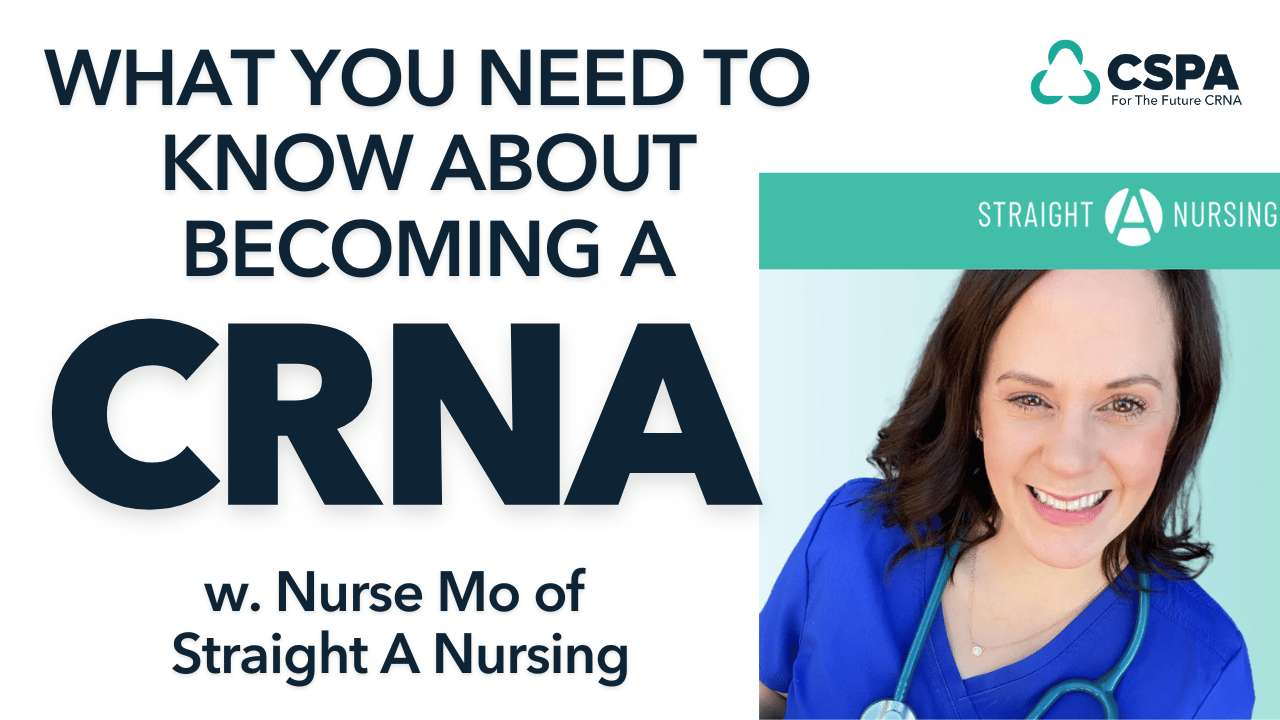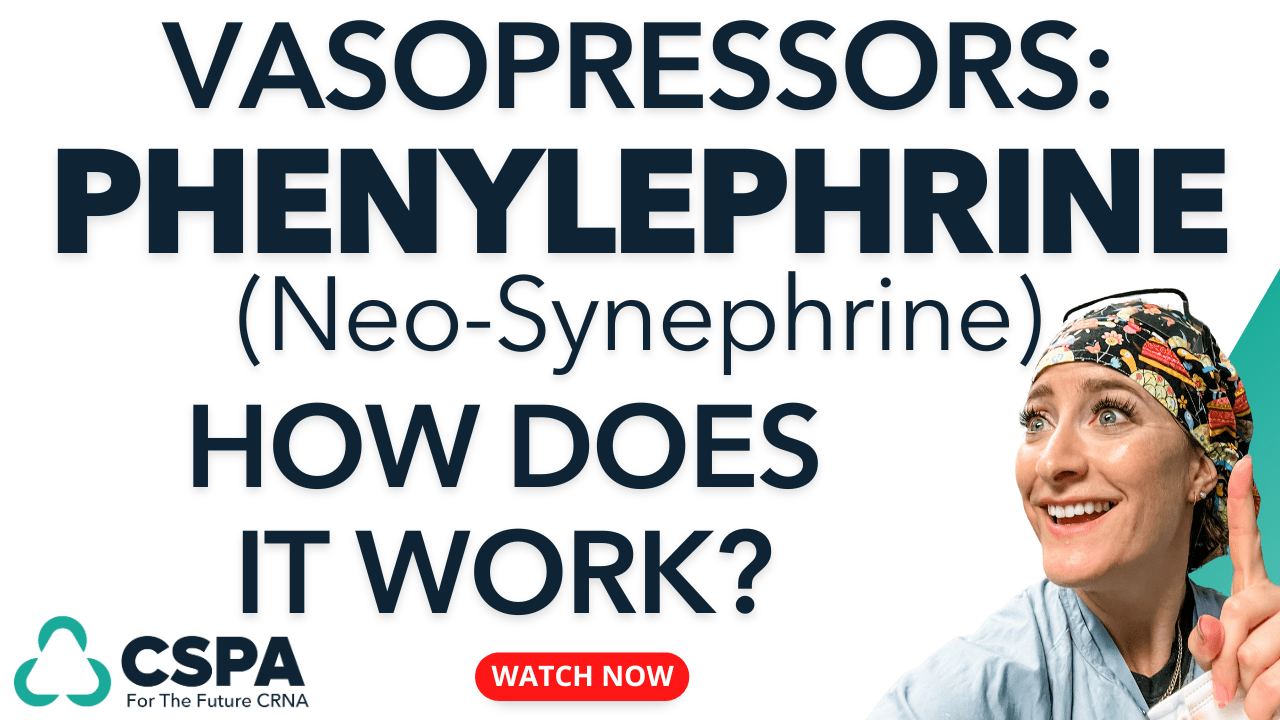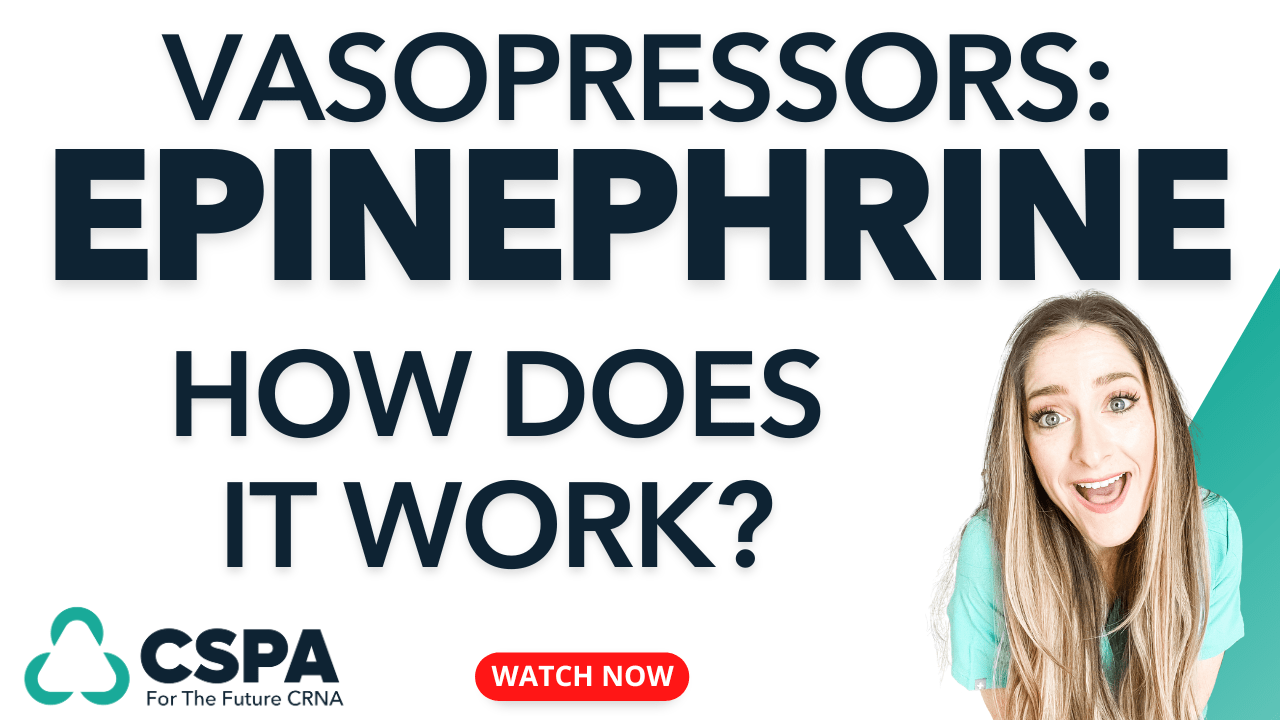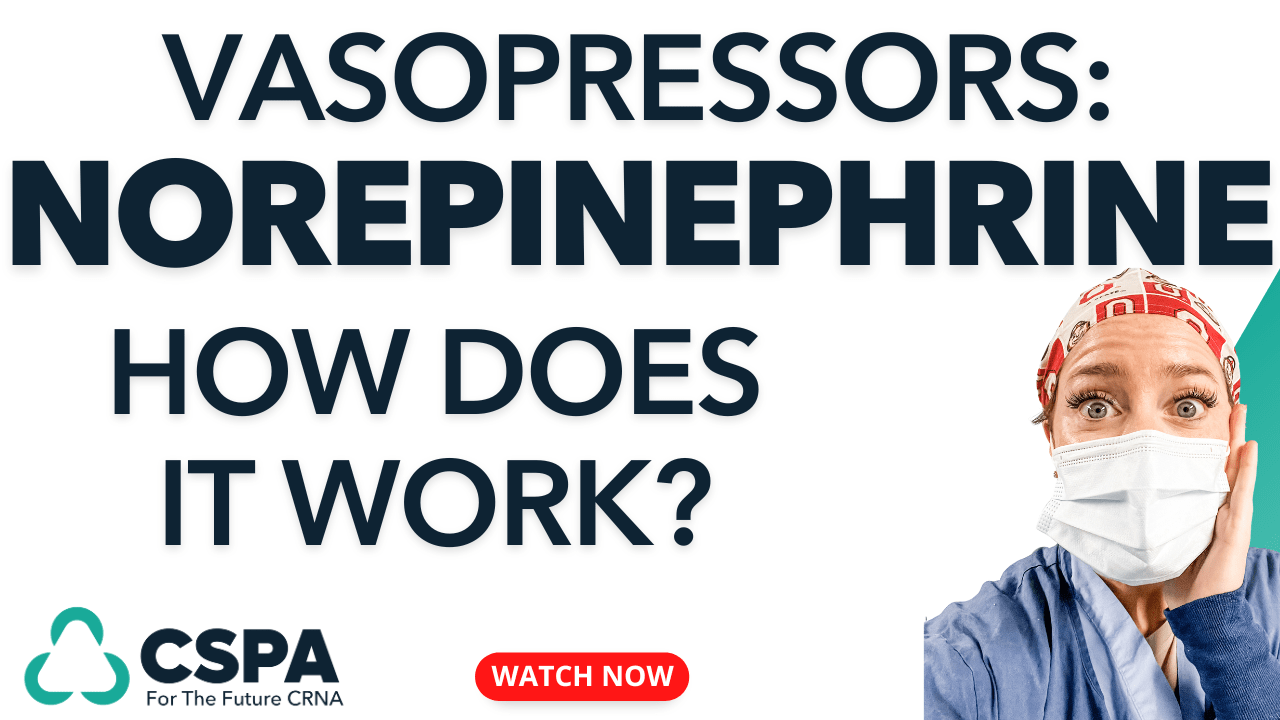
Get Your Free CRNA School Interview Prep Guide
Free CRNA School Interview Prep Guide Click Here
How do you best prepare to ace this critical part of your CRNA school acceptance? Tune in as Jenny Finnell gives us her best tips so you can rock your CRNA school interview with confidence!!
Fast-Track Your CRNA Interview Prep with our CRNA Interview Crash Course! https://www.cspaedu.com/4wotmlds
Thousands of nurses have gained CRNA school acceptance with CRNA School Prep Academy. Join today for access to all of the tools proven to accelerate your CRNA success! Click here:
https://crnaschoolprepacademy.com/join
Join the CSPA email list: https://www.cspaedu.com/podcast-email
Join the Free Facebook Community here! https://www.facebook.com/groups/crnaschoolprepacademyfree
Book a mock interview, resume or personal statement critique, transcript review and more: www.teachrn.com
—
Watch the episode here
Listen to the podcast here
Our BEST CRNA Interview Prep- ACE Your CRNA School Interview With CSPA!
In this episode, we are going to bring you our very best CRNA school interview tips. We want to make sure you are acing your CRNA school interview so the following episodes are going to be oldies but goodies that are going to share with you some of the best knowledge and insights on how to tackle your CRNA interview. First up is Episode 46, which reveals real CRNA interview questions, and that way you know what to expect. If you’re looking to listen to the full episode, it is going to be Episode 46. Next, we are going to go into Episode 64, which is questions that you should be prepared to ask the interview panel. Last but not least is Episode 137, which is more steering at school interview practice questions. I hope you guys enjoy this episode. Let’s go ahead and get into the show.
CRNA School Interview Questions
We are going to cover real interview questions. This will be a great resource for you when it comes time to study for your interviews. I’m literally going to go through real actual questions that the students were asked, so you have a nice little study list to go by. Everyone’s afraid of their CRNA interview. I can tell you I know everyone thinks they did way worse than what they probably did. We are all our own worst critic.
I also want to remind you that these schools are not looking for perfection. Again, it doesn’t exist. Do the best you can, and that’s okay. If you don’t know something, try to tell them something you know about the topic versus saying, “I don’t know.” I’m not saying that you should make something up and completely bluntly lie, but if you don’t know the answer, say, “I’m not familiar or I don’t know that but this is what I do know. This is what I can tell you around that topic.”
They can then gauge where you’re at with your knowledge base. If you say, “I don’t know,” they have nothing to gauge; give them something to work with Click To TweetThey can then gauge where you’re at with your knowledge base. If you say, “I don’t know,” they have nothing to gauge with. Try to give them something to work with. Let’s go ahead and get into it. The number one thing that you will be asked in CRNA interviews is about drugs. You’re going to have to know various drugs down to the cellular level of how they react to receptor sites.
By far, the most common thing asked in CRNA’s interviews is to know your ICU drugs, vasoactive drips, sedative drugs, and ACLS drugs. Again, know them down to the cellular level and how they work. This person asks about drugs and the receptors down to the cellular level. They got asked about stroke volume, so knowing the formula for that. Frank-Starling Law and they got asked about SvO2 and how pulse-ox works, which I probably even know what program this is. I’m not going to say it because it’s a favorite question.
Look up something called the Beer-Lambert Law. There’s a website called HowEquipmentWorks.com. They give a good description of the Beer-Lambert Law. If you were to visit that site, it does do a good description of how a pulse-ox works. It talks about the wavelengths, different light, and that type of thing, so check out that website. Also, for those of you who are CRNA School Prep Academy students, we have resources for pretty much all of these questions, as well as our learning library. It covers all of this in detail.
There’s no way I have time to cover all of these questions in detail. I’m literally going to be telling you the questions for you to do your own studying for those of you who are not familiar with the types of CRNA school questions. Another question that was asked is, “If I had a warning label, what would it be?” That’s a unique question and interesting. They also got asked, “What is something about me that the interview panel might not know?” They’re digging for a little more information from you than they can get from your resume. They’re trying to see who you are as a person.
They wouldn’t know otherwise. Don’t say, “I have been a CVICU nurse for six years and prior to nursing, I was a nurse’s aide.” It’s all on your resume. They want something that they can’t find out from the resume. Make sure you’re telling them something unique about you. This one person was told to take a financial preparedness quiz prior to the interview, which was very interesting. I bet you, depending on how that quiz or survey shook out, they may ask you about financial preparedness in the interview.
Beyond Your CRNA School Resume
This person was asked to describe late versus early signs of sepsis. Tell me about yourself. That’s a very common question, so similar to, what’s something about me that the interview panel might not know? It’s a different way to ask me or ask you to tell me about yourself thing. I’ve had students ask me, “Should I talk about work-related things as far as ‘tell me about myself’ and highlight my accomplishments on my resume, or should I make it all personal?”
That’s up to you. There’s no right or wrong answer for that. Make sure if you do make it about work, you are summarizing and highlighting the main points versus regurgitating your resume. I can’t speak for all the programs, but I like personally ‘tell me about yourself’ because I can get other things from your resume. If you had some major accomplishments like a Daisy Award or something like that, maybe tell the backstory about the Daisy Award. Something like that to highlight on your resume.

CRNA School Interview: There’s no right or wrong answer. Make it about work, highlighting the main points versus regurgitating your resume.
Maybe something about you that makes you who you are as a person that allowed you to get that award professionally. You can still blend personal and work together for that question. If you have considered advanced practice nursing professions, how have you prepared, or have you considered other advanced practice nurse roles? That’s interesting. They might ask you, have you considered becoming an Acute Care NP or any other Acute Care NPs, and why? What brought you back to CRNA?
They asked this person how they had prepared up to this point for CRNA school. This is important to have been actively doing things. This is why I preach all the time that you should be preparing for CRNA school from the time you decide you want to do it to the time you step in the ICU. It should be a very long road ahead of you- being part of CRNA School Prep Academy, going to conferences, doing what you can to get involved in the community, and understanding and knowing what this profession is all about by shadowing CRNAs.
Again, they’re looking for how invested you are in your career path to becoming a CRNA. How do you deal with stress? That’s a good question because you’re going to be stressed out in school. In one of my previous episodes, I talked about overall having a wellness plan. You need to have a wellness plan and know how you’re going to deal with your stress. I think it starts from having a good habit on doing things almost daily to handle your stress. If you have good coping mechanisms to handle your daily stress, you’re going to be okay in CRNA school.
Personal Questions In A CRNA School Interview
They’re going to pry and ask you these things. It’s having that plan and knowing how to speak to that plan like, “This is what I do to cope with my current stress. This is how it’s going to help me in CRNA school.” This person also got asked, have you prepared financially? It’s very important too. In the last episode we did, I also covered one of the first things you should do when you gain acceptance to the school. You should be doing this prior to, but one of the first things you should hone in on is your financial readiness once you gain acceptance. Get everything in order.
Tell us about a failure in your life and how you overcame it. I think people have a hard time thinking about when they failed. I know if you’re like me, sometimes when something negative happens, it must be a protective mechanism, but I black that out. I don’t hone in on it or dwell on it. Over a period of time, I tend to forget those things or I don’t remember them in great detail. Don’t get me wrong. I can speak of some bigger failures but it’s important to start thinking about that now so you have the details.
I could probably tell you what I’ve failed at, but could I tell you all the details? Not unless I’ve probably dwelled and focused on it. I don’t know if that’s a bad thing or a good thing. I’m saying I know that’s how I am. If something happens to me that’s not good, I tend to try not to put too much focus on it. I try to keep moving forward from it. When I’m asked what the details are later, I’m like, “I don’t know but this is how it turned out, and I’m okay now.” Anyhow, it’s something to think about.
We obviously all learn from our failures. That’s part of what it is, but remembering the details of the failure and the actionable steps you took to overcome it is what sometimes can get a little muddy over time. Talk about a lot of conflicts where you got criticism from a coworker. That’s a good one. Has that ever happened? Do you even know about it? Pardon me things. If I had a coworker say something about me, I don’t even know if they’d be mad enough to tell me to my face.
I’m sure people have said stuff about me behind my back but have you done something where someone has confronted you on it and remembered that because it’s the same thing. I would even have a hard time thinking on the spot what that would be. I remember one time I got mad at a coworker who left out of order. I was due to leave at 3:30. It was 5:30 at night, and she was at 5:30. She left at 5:20 PM and left me in a room to finish my case.
I was angry about that. I confronted her, and we got into this little riff. We’re fine now but she was mad at me for being mad at her back. Personally, she was in the wrong. Anyhow, I’m still sticking to that story. Thinking about those things ahead of time will make it much easier to see them on the spot, especially when you’re nervous. I don’t know you, guys, but I had two CRNA interviews. I have a way harder time with personal questions than I do with black-and-white questions.
For me, it’s easy to study black-and-white stuff and be able to understand it. For the personal questions, I’d have to put a lot of effort into having a good game plan in my mind on what I would say. It’s about being reflective on yourself and your experiences, both in the ICU and personally. This person also asked, “Tell us about your shadowing experience.” Why I stress documentation is because if your shadow experience was years ago and now you’re in for your CRNA interview, and they want you to describe and explain your shadow experience, you’re going to be like, “Uh.”
If you documented your shadow experience and wrote down everything you learned, your takeaways, and all that stuff, you can review that prior to your interview. You can also submit it as documentation, which I think always looks good, even if they don’t require it. Even early on, document your shadowing experience. What’s cool about documenting every time is you’re going to see your growth. You’re going to see, “When I first shadowed, this was my takeaway. I was so laser-focused on a couple of things. Now that I’ve done it several times, my takeaways are a much bigger picture.”
Get Your Free CRNA Shadowing Documentation Form Here: https://www.cspaedu.com/j814jsxq
I think that would be cool to see. You can report that too when they ask you about this question, “I’ve documented every single shadow experience, and these are my big takeaways when I compare my first and my last shadow experience.” That would be a cool way to answer that question. That would be impressive. This person was asked about hemophilia shock but down to the body’s compensation, such as the RAS system, which is the Renin-Angiotensin System, so understanding that in every detail. This person, again, medications and receptors they acted on. I already touched on that. Pretty much a given that you’re going to be asked about drugs and how they affect.
ICU drugs, ACLS drugs, sedation drugs, pain medication, those are the big ones, but they could even ask you about clonidine. It is a sedative drug. I even have heard about Pepcid and different histamine blockers being asked out too. Not just vasoactive drugs. Any medications you’re giving, you should understand how they work. That’s what it comes down to. It’s hard to say, “There’s so much to know,” but that’s why if you take it day by day, little by little, while you’re gaining one to two years of ICU experience is not going to feel super overwhelming.
If you wait until you’re two weeks away from the interview and you’re like, “I have all these drugs to study,” it’s going to be super overwhelming. You’re probably not going to be able to know everything that quickly, but if you quiz yourself over time while you’re working in the ICU, you’re going to see that drug more than once. The next time you see it, it will jog your memory of what you’ve already studied. You’ll study it again because you’ll remember it. It will be reinforced then it’s not going to feel super overwhelming to be asked about in the interview. Please take my advice and do that.
—
Questions To Ask The CRNA Interview Panel
We’re going to cover what are some questions that you should be asking the interview panel after your interview. As you may know, CSPA has two expert contributors now, Richard Wilson and Dawn AuBuchon, who have program director experience. Richard has assistant program experience, both well over ten years. They come to CSPA with a lot of insight over the last decade on guiding students to get into their programs on how to make them competitive candidates. I’ve recently posed this question because I get asked this a lot. In this episode, I’m going to share some insight from them on what they like to get from students during the CRNA school interview as far as questions at the end. Now I also want to start this off by saying that you should have a question for the interview panel.

CRNA School Interview: You should have a question for the interview panel.
I have heard program faculty say that they get to the very end of the interview, it might have been a good interview and then they ask their student to the interviewee if they have any questions for them and they say no. It leaves them feeling like, “I want you to have something to ask me.” You should have at least one question. Now you don’t want to have a laundry list. I would encourage you to pick 1 or 2 questions, maybe a third question. But for the most part, I think two is probably where I think most students should call it quip because they usually are on a time requirement to interview you and don’t have time to ask 5, 6, or 10 questions. You also want to be very careful that you’re not asking questions that you can easily find out through visiting their website.
This is a big red flag for a lot of programs that shows that you didn’t do your due diligence and thoroughly read through their program and what their program’s all about. There are also a lot of schools that will do what I call a meet and greet prior to the interview where you mix and mingle with students and the program faculty introduce the program and hit a lot of questions that students typically have about their program. This tends to make it tricky because then you may have had a question prepared, but if they went over that during that time, you clearly don’t want to be asking that question because then it shows that you didn’t listen. Sometimes programs do that on purpose to cut down on how many questions students have for them because they typically maybe have 1 or 2 questions tops that you can ask them during the timeframe that they have to interview.
Either way, I asked for guidance from both Richard and Don to see what they had to say about students asking questions at the end of the interview. Some of the questions that were recommended were turnover rates for faculty, which I found very interesting. I personally would never have thought to ask that question. The reason why I think this question is good is because if they have had a high turnover rate for faculty, and I hate to say this, but a lot of programs do, it could indicate some instability or potentially, if they have all this new faculty, it could make your time as a student even a little more challenging is probably a good way to put it because they’re going to have some kinks to work out.
When I was in school, we had a program director retire. We had a new assistant director that also taught class. I remember she didn’t have anything to go by because the previous professor would talk off the cuff and didn’t necessarily have a lot of prepared notes. This newer person struggled that during the time that we came into her course, and I know she worked hard and she did a great job, but was it a little intermittently challenging? It made for a transition that reflected a little more challenge on us, the student body. While at the end of the day, we all did great, and we all went on to become CRNAs, it was fine, but it is something to consider and think about if they have a high turnover rate in faculty and that could signal potential and some instability and why is that?
That’s what essentially was said that could indicate the stability of a program if they have had longstanding faculty members, that’s a good indication that the program is very stable. In the program that I went to, the director retired after 15 or 20 years. It was a very long time. For the most part, that program over the last several years has only been run by two people which is amazing. I think that’s a good thing. Also, it’s suggested what your faculty enjoys most about the program, which I think is interesting and it lets them give their own personal opinion, which I think is a great question to ask because it’s not something again that you can find on their website. What do they enjoy the most about their program, which will allow you to find out something maybe a little more unique that maybe only insiders would know about, for example.
Another question is, “Do they support or encourage students to attend professional events through the AANAs, state associations, those types of things?” I think that’s key because I mean some schools are proactive with it and make sure they get their students involved and other programs, it’s optional, it’s there, but essentially it’s a little more on the students to take initiative to do it versus the programs saying, “You need to go do this,” kind of thing. It would be based on your own values, based on what you want out of your education. I think that’s a great question to ask.
CRNA School Attrition Rates
Another question is, “What are the two most common reasons for attrition and your program?” I think that’s awesome as well because it allows them instead of saying, “Can you explain your attrition rate?” You could say, “What are the two most common reasons for your attrition rate?” Some schools have significantly high attrition rates. Some schools that I know of have 35%. That’s very high. Some schools historically have a low attrition rate, like maybe less than 10% and then all of a sudden one year boom, they have 30%.
What happened? It leaves you wondering. It’s not always a bad thing about the school, don’t read into it, not apply to a school because they have a high attrition rate. There could be a very good reason for that. I know that the year 2020 was quite a year. That year almost all programs across the board had a little bit higher attrition rate. Is it at the fall of the programs? No, there were a lot of things going on like transitioning to virtual, and sure that was an added challenge and stressor on the student body, but it could have also been students having personal problems with everything going on that year.
It’s not always a negative reflection on the program, but it could indicate such. It’s important to say, “What are the two most common reasons that you feel like your attrition rate is 30% or 20%?” See what they say. Sometimes you literally have students who get into CRNA school who decide that it’s not for them and that’s no fault of the program. If anything, that’s why you need to shadow a CRNA because I can’t imagine getting into schooling and deciding, “This is not what I want to do.”
That does happen. I’ve had students who maybe have had medical problems, who got diagnosed with cancer, or now have this major medical thing looming over them, or they decided to take a year off. They could start a family, or they did start a family and they decided to drop out. Whatever the reason is, there may not be anything wrong with the program. I think it’s an important question to ask. I want to share with you that you can grab another amazing freebie. This one is different because it’s CRNA school interview questions, but it’s a study guide. It’s essentially answered clinical interview questions. It’s a study guide that you can download. Make sure you grab that free resource. It’s going to help in your preparation for the interviews.
It’s clinical related questions. That’s about 10 clinical questions that are all answered for you. Make sure you grab that freebie. Another question is suggested for the interview panel and Dr. AuBuchon says she likes creative questions, which I think is cool, and asks about how the program encourages wellness for their students and residents. I think this is a great question because, well first wellness is the priority of what schools are realizing their students need., 2020 was a hard year. I think it unraveled a lot of weak points in CRNA schooling and a lot of that stems from not allowing students to focus on their own wellness or not having students prepared to focus on their wellness. I mentioned in other episodes, that it’s a vital step to making sure that you know what you need and making sure you’re still doing those things despite being busy.

CRNA School Interview: Wellness is really at the priority of what schools are realizing their students really need.
What are the schools doing to encourage wellness for their students? It’s cool to know if maybe they have certain programs, some programs even have free counselors that you can go to. It might be a cool way to find that out. Do they have a wellness leader for each cohort that plans wellness events for the students’ residents? I think that’s cool too because that’s not very common to have a program to have focus on having a wellness leader within the program. I think that’s a great idea. It’s a cool thing to bring up and ask about because even if they don’t, if you were to ask that question then be like, “We don’t, but that’s a great idea.” You may take the lead for that. You can come to their program and you can be the wellness leader. Do you see how you can spin that a little bit? You can share that you’re passionate about that and how you would love to help that program exist in their program.
—
I want to wish you the best of luck on your upcoming interview. I know you’re probably like, “Jenny, I’m freaking out.” I totally get it. Congratulations, because the fact that you got an interview means that you’re qualified for acceptance. They saw potential in you. You have to believe in your own potential. Try to get the mindset right and look at it as this is an opportunity to learn and grow and see what this is like. All CRNA schools are a little different as far as the style of the interview. Not all schools will even ask you clinical-style interview questions. If that is you, while I still think this episode’s going to be incredibly valuable, especially long-term, as you start your CRNA journey, know that not all schools are going to ask you pathophysiology pharmacology questions.
The fact that you got an interview means that you're qualified for acceptance. They saw potential in you, so you have to now believe in your own potential. Click To TweetPathophysiology & Clinical CRNA Interview Questions
While you should not neglect that knowledge base because there’s always potential, you should understand the style you’re getting ready to go into. If they’re going to ask you more personal questions, at the end, I cover some common personal questions and different tidbits on how to answer those. I’ll wing it because I don’t have that in the study guide. I don’t want to leave you out if you’re getting ready to experience a very heavy personal interview. At the end of the episode, I’ll cover some common personal questions that you may get asked, and some of the different variations and personal questions that I have heard throughout the years of mentoring students.
Without further ado, let’s go ahead and get into it. First, we are going to cover the question, “Please explain the difference between SaO2 and PaO2.” SaO2 is the percentage of hemoglobin binding sites that are occupied with O2 oxygen. PaO2 is the pressure exerted by the oxygen, O2, on the arterial wall. Your PaO2 or your pressure is measured in millimeters of mercury. The normal adult is within a range of 82 to 100. The normal PaO2 in an adult is 80 to 100 millimeters of mercury. I want to emphasize the unit of measurement, millimeters of mercury. If they ask you some clinical question and you rattle out a number, they may come back and say, “In what unit of measurement?”
If you haven’t quite paid attention to that, you could be like, “I knew the number, but I didn’t remember the unit of measurement.” to have a fully correct answer, you need to remember the unit of measurement. The PaO2 is measured as millimeters of mercury. Normal is 80 to 100 millimeters of mercury. The SaO2 is measured as a percentage. The normal adult percentage is right around 90% to 100% SaO2.
The PaO2 requires an arterial blood sample, while a SaO2 can be acquired by placing a non-invasive sensor on the skin also known as the pulse oximeter. Note here, that oxygen saturation, the SaO2, does not differentiate between oxygen or carbon monoxide as they both bind to hemoglobin. You can have carbon monoxide poisoning, and on your pulse oximeter, you could be registering 100% O2, and you’re like, “I don’t know you look so blue.” Know that, unfortunately, the pulse oximeter doesn’t differentiate between the two. That could be a little curve ball they throw you potentially.
Let’s move on to the next question, “What is the difference between hypoxia and hypoxemia?” The definition of hypoxia is low levels of oxygen in body tissues. Hypoxemia, the emia, means blood. Hypoxemia means low levels of oxygen in the blood. Relatively basic, but the emia is the differentiating factor that can trigger your brain to differentiate the two.
We’re moving on, “Go ahead and tell me about the pathophysiology of ARDS, which is Adult Respiratory Distress Syndrome.” ARDS is very complicated, and there’s probably more to it here, but I explain it in three stages to make it easier. Keep in mind that if they ask you about ARDS, this could lead to explaining sepsis. They go hand in hand, but ARDS is a special type of sepsis. Make sure you’re differentiating between the two and not blending them together. If they have you explain the difference, be able to do so. Let’s go into the three stages of ARDS, which is exudative, which is damage to the alveolar epithelium and the vascular endothelium, which causes it to produce leakage of water. Your lungs can then fill with leakage. It also leaks protein and different inflammatory mediators, red blood cells into the interstitium and the alveolar lumen. It fills your alveolar sacks with fluid and different types of inflammatory mediators, red blood cells, protein, etc.
Type 1 alveolar cells are irreversibly damaged. That space is replaced by the deposition of the proteins, fibrin, and cellular debris-producing membranes while injury to the surfactant-producing Type 2 cells contributes to alveolar collapse. There are two different types of damage going on. There are damaging Type 1 alveolar cells, which are irreversibly damaged. That space is then replaced by proteins, fibrin, and cellular debris.
There’s also injury to the surfactant-producing Type 2 cells, which then causes the alveolar to collapse. You may know surfactant in infants. That’s why preemie babies get steroids to try to start producing that surfactant because, otherwise, their lungs very easily collapse. They get severe atelectasis, pneumonia, hypoxia, and things of that nature that can happen from atelectasis. ARDS is a situation where that is occurring. Not only are you filling up the alveolar with the fluid, and different types of inflammatory mediators, but you’re also damaging the Type 2 surfactant-producing cells, which then unfortunately allows the alveolar to collapse and not remain open easily.
In patients who have ARDS, you’ll see them on very high levels of PEEP to try to combat the lack of surfactant and the collapse of the alveolar cells. You then have the exudative phase then you have the proliferative phase, which is where the Type 2 cells proliferate with some epithelial cell regeneration, which can cause a fibroblastic reaction and remodeling. You then have the very last, the third stage, which is fibrotic, which involves collagen deposition in the alveolar vascular and interstitial beds with the development of microcysts.
Painting a grim picture here, but it self-festers into being a damaging process to your lungs, where very little healthy lung is left, if any. It’s incredibly hard to get a patient to recover from this because it creates this vicious cycle that severely damages the cells to the point where they’re of no return. Those are the three stages of ARDS. In ARDS, the sooner you intervene and correct the underlying cause, the better the outcome will be. If you get to the second and third phases, the outcomes are probably going to be relatively poor. What are some optimal vent settings then for ARDS? They may ask. Those are low tidal volumes, between 4 to 6 millimeters per kilo to prevent volume trauma.
The alveoli are sensitive because they’re already maxed with pus and fluid. Their surfactants are damaged. They don’t have much elasticity anymore. If you’re blowing large tidal volumes in there, you’re going to further damage the cells. They typically do low volume and keep their airway pressures low because they’re going to be unnaturally high because of having the lack of surfactant and being full of fluid and things of that nature.
You want to watch your plateau pressures. You always want to try to aim to keep that below 30 centimeters of water. You want low tidal volumes, probably higher respiratory rates. You want to watch your airway pressure to keep your plateau pressure under 30 centimeters of water. That is ARDS. Keep in mind that they could lead to sepsis from there. The pathophysiology of sepsis is pretty complicated. I do go into that in some of the next questions.
—
That’s all for this episode, future CRNA. I hope you enjoyed our interview prep tools for you. As a reminder, in case you want to go back and read the full episode, if you want more real CRNA school interview questions, be sure to check out Episode 46. If you’re looking for more help with what questions to ask your interview panel, you can go back to Episode 64 for the full episode. If you’re looking for more CRNA interview practice questions, be sure to read the full episode of 137. Until next time, take care.
Important Links
FREE! CRNA School Interview Prep Guide: https://www.cspaedu.com/irptwqbx
Fast-Track Your CRNA Interview Prep with our CRNA Interview Crash Course! https://www.cspaedu.com/4wotmlds
Thousands of nurses have gained CRNA school acceptance with CRNA School Prep Academy. Join today for access to all of the tools proven to accelerate your CRNA success! Click here:
https://crnaschoolprepacademy.com/join
Join the Free Facebook Community here! https://www.facebook.com/groups/crnaschoolprepacademyfree
Get CRNA School insights sent straight to your inbox! Join the CSPA email list: https://www.cspaedu.com/podcast-email
Book a mock interview, resume or personal statement critique, transcript review and more: www.teachrn.com








